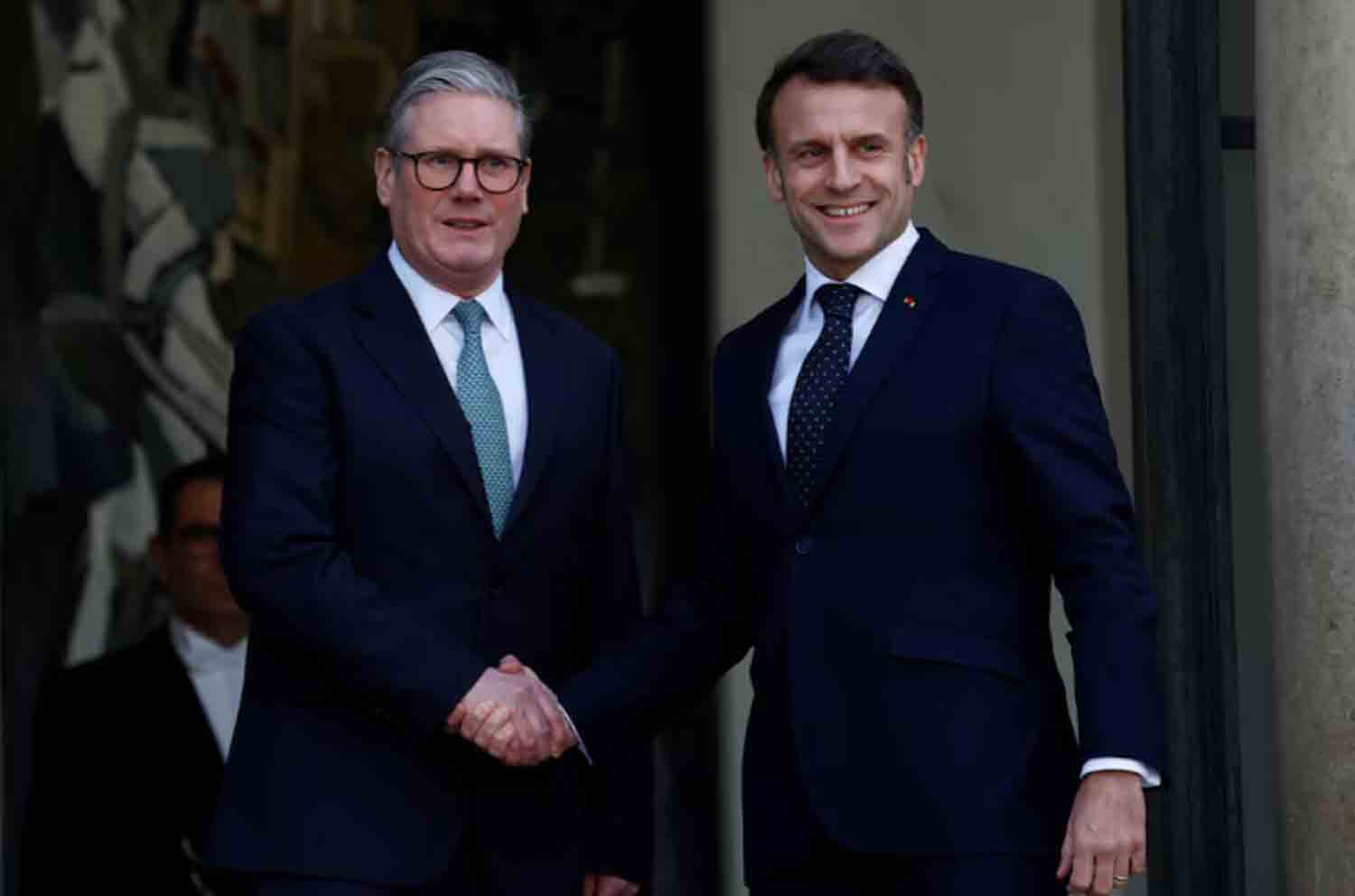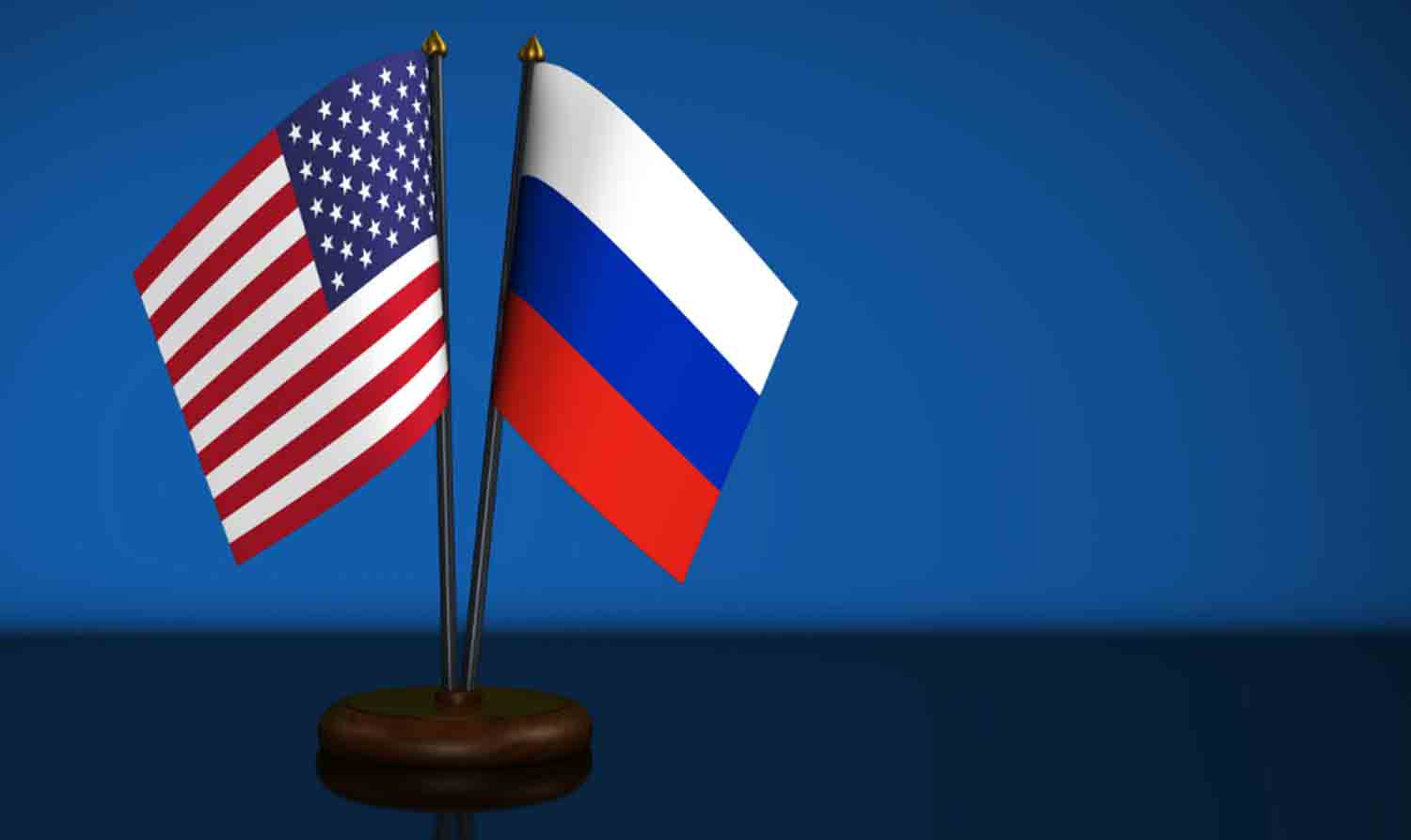European leaders convened in Paris for urgent discussions on Monday, advocating for increased investment to enhance the continent’s defence capabilities. However, they remained divided on the proposal to send peacekeepers to Ukraine to support any potential peace agreement.
The leaders concurred that it would be perilous to establish a ceasefire in Ukraine without simultaneously securing a peace deal. They expressed readiness to offer security guarantees to Ukraine, contingent on the level of support from the United States, according to a European official.
“We align with President Trump on a ‘peace through strength’ strategy,” the official stated, requesting anonymity.
The Paris summit was initiated by French President Emmanuel Macron following U.S. President Donald Trump‘s arrangement of bilateral peace discussions with Russia, which excluded European allies and Ukraine from the negotiations aimed at resolving the conflict, set to commence in Saudi Arabia on Tuesday.
Macron had a conversation with Trump prior to the meetings, as confirmed by officials from both nations. A White House representative described the call as “friendly,” during which they discussed the Paris gathering and the upcoming talks in Saudi Arabia.
Ukrainian President Volodymyr Zelenskiy also reported having an extensive conversation with Macron regarding security guarantees. “We share a common vision: security guarantees must be robust and reliable,” Zelenskiy stated on X, adding that any decision made without such guarantees, like a fragile ceasefire, would merely be another deception by Russia and a precursor to renewed aggression against Ukraine or other European countries.
Trump surprised Ukraine and its European allies last week by announcing his call with Russian President Vladimir Putin, who has been largely isolated by the West, to discuss ending the war without prior consultation. This has forced them to face the reality of a future with diminished U.S. support. The U.S. decision has prompted European nations to recognize the necessity of taking greater responsibility for Ukraine’s security.
British Prime Minister Keir Starmer expressed his willingness to deploy peacekeeping troops to Ukraine prior to a recent meeting. However, he emphasized on Monday that a U.S. security commitment is essential for European nations to consider sending their forces. He noted that it is premature to determine the number of British troops that could be dispatched.
The introduction of a peacekeeping force could heighten the risk of direct conflict with Russia, which initiated its full-scale invasion of Ukraine in 2022. Additionally, it would place a strain on European military resources, which have been diminished due to ongoing support for Ukraine and a prolonged period of relative peace.
There are also significant concerns regarding how some European countries, facing strained public finances, would fund these increased military obligations. Keith Kellogg, who served as Trump’s envoy to Ukraine, announced his upcoming visit to Ukraine and was questioned about the possibility of the U.S. providing security guarantees for European peacekeepers. He remarked, “I’ve been with President Trump, and the policy has always been: You take no options off the table.”
DEFENSE SPENDING
Starmer’s advocacy for peacekeepers seemed to create a rift among the attendees in Paris, which included German Chancellor Olaf Scholz, as well as the prime ministers of Italy, Poland, and Spain—Giorgia Meloni, Donald Tusk, and Pedro Sanchez. Scholz stated that any peace agreement must have Ukraine’s approval, labeling discussions of a German peacekeeping mission in Ukraine as “highly inappropriate” without a formal peace agreement. Both he and Tusk suggested that strict EU fiscal regulations should be relaxed to facilitate increased defense spending without risking violations of the EU’s deficit criteria.
Meloni raised concerns regarding the peacekeeping strategy, as reported by her office sources. She stated, “Today’s discussions on the various proposals were beneficial. However, the option involving the deployment of European troops in Ukraine appears to be the most complicated and potentially the least effective, and I expressed Italy’s reservations on this matter.”
Danish Prime Minister Mette Frederiksen expressed her willingness to consider troop deployments, emphasizing the need for Europe to enhance its support for Ukraine while increasing domestic defense expenditures. “Unfortunately, Russia poses a threat to all of Europe now,” she remarked to the press.
US AND RUSSIA TO MEET IN SAUDI ARABIA
On Tuesday, senior officials from the U.S. and Russia are set to convene in Saudi Arabia. This marks the highest-level in-person discussions between the two nations in several years, intended to pave the way for a meeting between Trump and Putin.
On Monday, Saudi Crown Prince Mohammed bin Salman held discussions in Riyadh with U.S. Secretary of State Marco Rubio, U.S. National Security Adviser Mike Waltz, and Middle East envoy Steve Witkoff, all part of the U.S. negotiating team. Russian participation will include Foreign Minister Sergei Lavrov and Kremlin foreign policy advisor Yuri Ushakov, according to the Kremlin.
However, indications of differing approaches have emerged. Rubio’s spokesperson, Tammy Bruce, noted that the discussions would assess whether the Russians are genuinely committed to peace talks and whether the initial steps toward that goal are feasible.
The Kremlin announced that discussions will aim at “restoring the full spectrum of Russian-American relations,” while Russia has firmly stated that it will not entertain any territorial concessions. Upon arriving in Riyadh, Ushakov indicated that the discussions regarding Ukraine would be strictly bilateral, as reported by Russia’s RIA state news agency. Ushakov was quoted by RIA saying, “We are here to negotiate with our American counterparts. There will be no trilateral discussions in Riyadh.”
Kirill Dmitriev, head of Russia’s sovereign wealth fund, is scheduled to meet with a U.S. delegation in Saudi Arabia on Tuesday to enhance bilateral relations and promote economic collaboration, according to a source in Riyadh. CNN reported that Dmitriev mentioned he had already engaged with several members of the Trump administration in Riyadh, describing them and Trump as “great problem-solvers.”
He expressed optimism about the potential for dialogue, stating, “Let’s have a conversation and determine the best solutions for our nations, for others, and for the global community.” Furthermore, Dmitriev refuted the notion that Russia’s primary goal was to ease sanctions, asserting that both the U.S. and Russian economies could gain from cooperative efforts. “Building bridges is crucial. U.S.-Russia relations hold significant importance for the world,” he remarked.
Discover more from Defence Talks | Defense News Hub, Military Updates, Security Insights
Subscribe to get the latest posts sent to your email.





